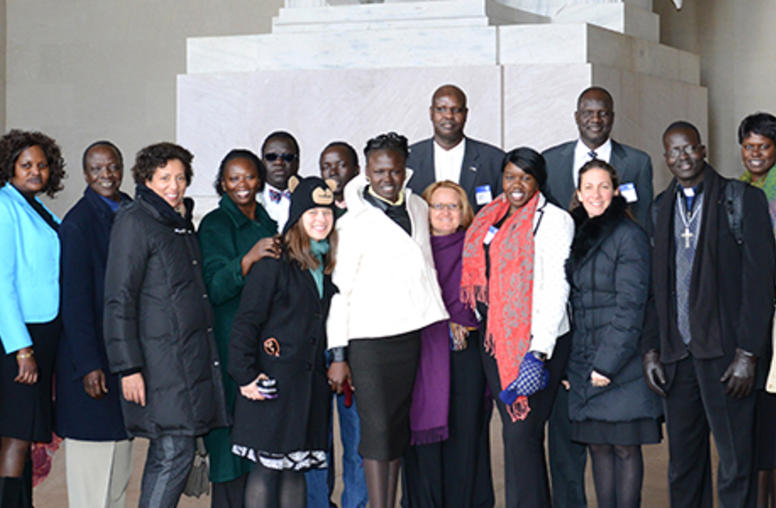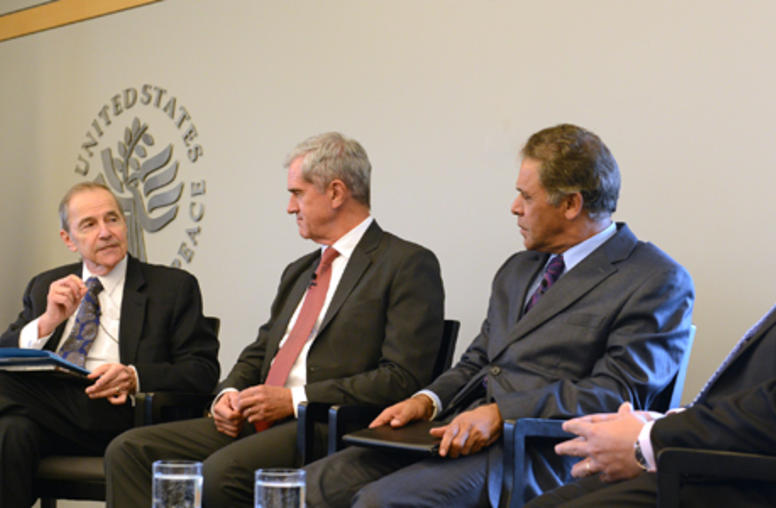The Institute, in partnership with the Defense Institute of International Legal Studies (DIILS), held a seminar at the US Naval Education and Training Center, Newport, Rhode Island for thirty-five civilian and military participants from ministries of foreign affairs and defense from twenty-two countries.
The Institute, in partnership with the Defense Institute of International Legal Studies (DIILS), held a seminar at the US Naval Education and Training Center, Newport, Rhode Island for thirty-five civilian and military participants from ministries of foreign affairs and defense from twenty-two countries. This was the fifth program conducted by the Institute for DIILS. The seminar focused on conflict management skills used in international humanitarian and peace operations.
This seminar was held in conjunction with DIILS´ five week training on Military and Peacekeeping Operations in Accordance with the Rule of Law. The program included presentations, exercises, and a simulation that strengthened conflict management techniques and skills, cross-cultural awareness, effective communication, as well as negotiation, mediation, and problem-solving techniques.
Participants were confident the training had increased their job effectiveness. Several senior military officers who had served in UN peacekeeping operations termed the simulation very realistic and said it reminded them of many of the challenges they had experienced.



